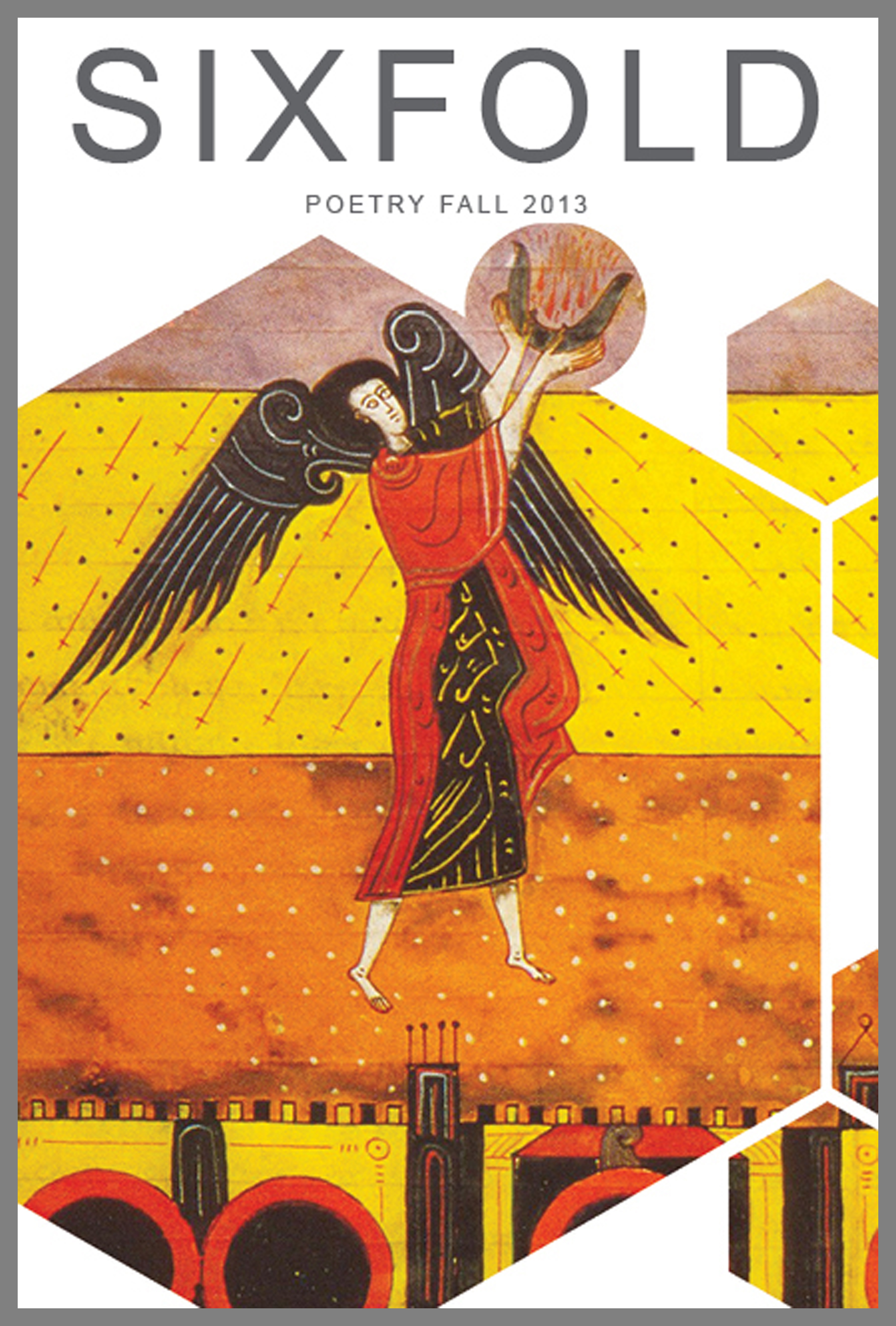Alia Neaton Publishes Her Poem Cosmogony in SIXFOLD
Ex Libris caught up with Alia Neaton to congratulate her on her recent publication in SIXFOLD. She was kind enough to answer a few questions about the poem, her process, and how the MAWP program at DePaul helped her accomplish her goals. Read the poem at SIXFOLD or listen to Alia read it on SoundCloud.
Ex Libris: Can you tell us a little bit about your process when composing Cosmogony?
Alia Neation: The inspiration for this series of poems began, as with most things, with something very small and focused. While these poems each fall under the same title, they vary in construction, design, and story. Cosmogony II, III, and V were all born of personal experiences that found expression through poetry. Poems I and IV were meditations on ideas and the experience of others. I started each of these at different times, with different intentions. It was less about creating a unified, single poetic construction at first. Only later, as I compared the themes and trajectory of the individual poems, did I identify a consistency that resonated with me. I titled them Cosmogony, because they reflect various facets of birth, transition, reflection, and death—elements inherent in beginnings.
Ex Libris: Could you comment on the structure of the poem?
Alia Neation: As I worked through various drafts (some required more than others), I changed the structure of the five poems multiple times. After slapping the first draft down, I’d revisit each piece and analyze how the form helped or hurt the poem and what I could change to enhance it. For example, I and II are mostly five-syllable lines, while III is structured around a three-syllable line. IV is broken into couplets, with the last stanza consisting of three lines, and this gradual break in form leads into the loose, conversational construction found in V.
Ex Libris: How did being in the MAWP program help you get published?
Alia Neation: Being in the MAWP program at DePaul was instrumental in helping me publish—I am a stronger and more disciplined writer, critic, and editor for it. The first class I took at DePaul was the Poetry Workshop with Richard Jones. Not only did that class really inform my poetry and process, but it also connected me to other poets and their work. I still meet with three former classmates once a month to exchange and critique work. It’s easy to allow the rest of what’s happening in your life to compromise writing time, but when you have a deadline and friends who are looking forward to reading your work, the pressure is positive and productive. Writing is work, but having a network of peers and instructors to encourage and challenge you prevents the work from becoming drudgery.
